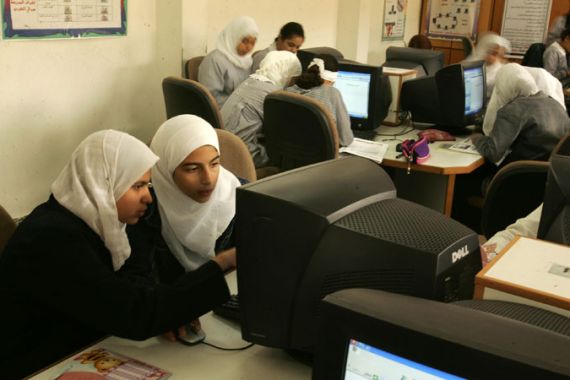UN to issue warning on Flame computer virus
Nations to be told virus is a dangerous espionage tool that could potentially be used to attack critical infrastructure.

A United Nations agency charged with helping member nations secure their national infrastructures plans to issue a sharp warning about the risk of the “Flame” computer virus that was recently discovered in Iran and other parts of the Middle East.
“This is the most serious [cyber] warning we have ever put out,” said Marco Obiso, cyber security coordinator for the UN’s Geneva-based International Telecommunications Union.
Keep reading
list of 4 itemsHong Kong’s first monkey virus case – what do we know about the B virus?
Why will low birthrate in Europe trigger ‘Staggering social change’?
The Max Planck Society must end its unconditional support for Israel
The confidential warning will tell member nations that the Flame virus is a dangerous espionage tool that could potentially be used to attack critical infrastructure, he told Reuters news agency in an interview on Tuesday.
“They should be on alert,” he said, adding that he believed Flame was likely built on behalf of a nation state.
The warning is the latest signal that a new era of cyber warfare has begun following the 2010 Stuxnet virus attack that targeted Iran’s nuclear program. The United States explicitly stated for the first time last year that it reserved the right to retaliate with force against a cyber attack.
‘Nation state involved’
Evidence suggests that the Flame virus may have been built on behalf of the same nation or nations that commissioned the Stuxnet worm that attacked Iran’s nuclear program in 2010, according to Kaspersky Lab, the Russian cyber security software maker that took credit for discovering the infections.
Kaspersky Lab said the Flame virus is unprecedented in size and complexity, with researcher Roel Schouwenberg marveling at its versatility.
Schouwenberg said there is evidence to suggest that the people behind Flame also helped craft Stuxnet. Many suspect Stuxnet was the work of Israeli intelligence.
Israel’s vice premier did little to deflect suspicion about the country’s possible involvement in the attack.
“Whoever sees the Iranian threat as a significant threat is likely to take various steps, including these, to hobble it,” Moshe Yaalon told Army Radio when asked about Flame. “Israel is blessed with high technology, and we boast tools that open all sorts of opportunities for us.”
“I think it is a much more serious threat than Stuxnet,” the UN’s Obiso said.
He said the ITU would set up a program to collect data, including virus samples, to track Flame’s spread around the globe and observe any changes in its composition.
Kaspersky Lab said it found the Flame infection after the ITU asked the Russian company to investigate recent reports from Tehran that a mysterious virus was responsible for massive data losses on some Iranian computer systems.
So far, the Kaspersky team has not turned up the original data-wiping virus that they were seeking and the Iranian government has not provided Kaspersky a sample of that software, Obiso said.